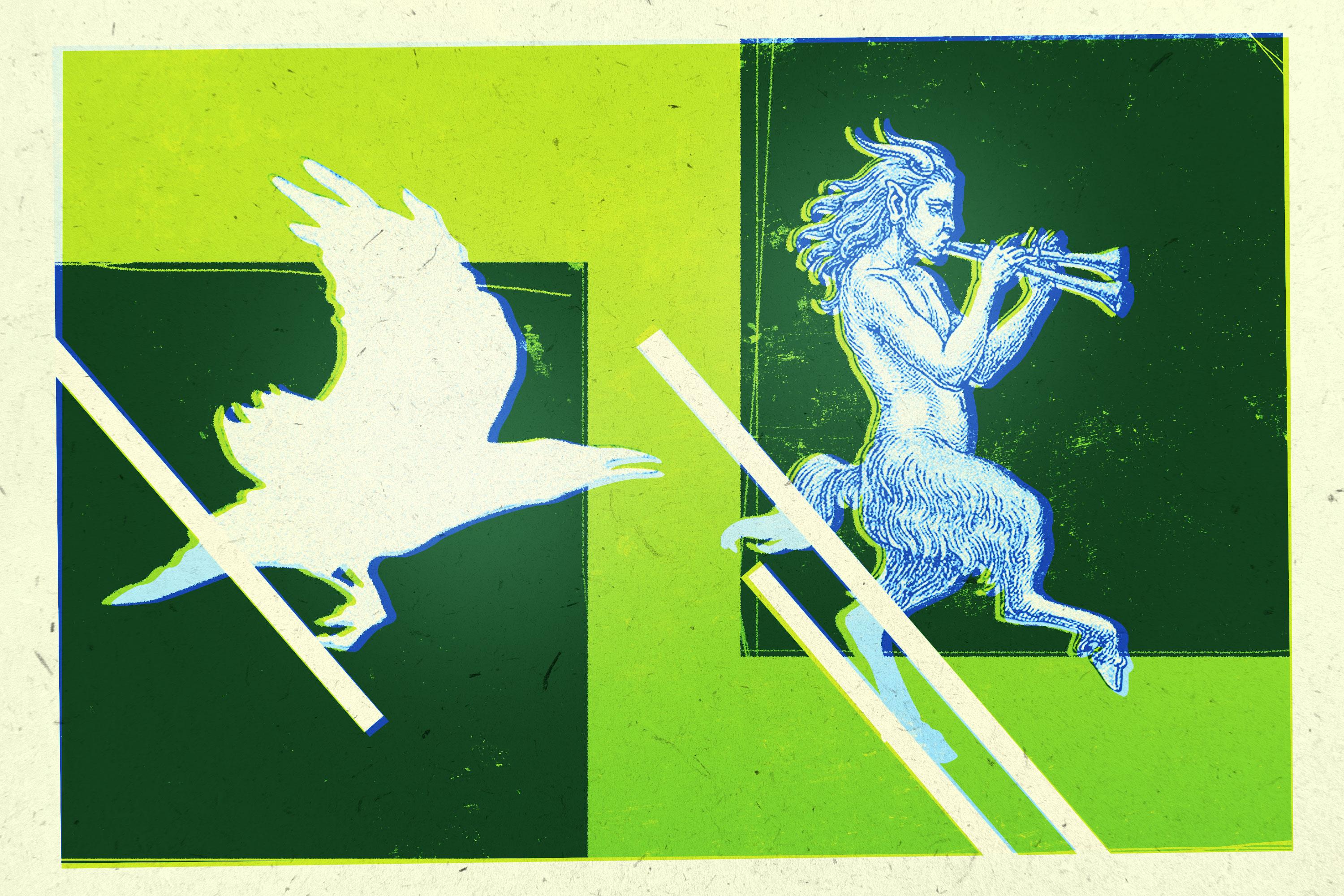Ringer Reads: Susanna Clarke’s Beautiful, Dark, Twisted Fantasy
There is no living fiction writer quite like Clarke. Her first novel, ‘Jonathan Strange & Mr Norrell,’ became one of the unlikeliest successes in the history of the fantasy genre. News of her second novel appeared, fittingly, as if by magic.
Welcome to Ringer Reads, a semiregular column by Brian Phillips about his favorite books, writers, and various literary happenings.
Susanna Clarke has a new novel coming out later this year. If you’re someone who might be excited by that sentence, chances are you knew and were excited long before you opened this article. Chances are, in fact, that you know as much about the new book as I do, which is to say, everything about it that’s been revealed to the general public: It’s called Piranesi; it’s Clarke’s first novel since her actual first novel, Jonathan Strange & Mr Norrell, became one of the unlikeliest runaway successes in the history of the fantasy genre way back in 2004 (mountains of copies sold, editions in 34 languages, awards recognition, a BBC adaptation); it’s due out in September; it’s set inside a house so impossibly vast that it contains (or as the publicity text intriguingly says, “imprisons”) an entire ocean; its title character is a man who spends his life exploring this mysterious and labyrinthine and generally impossible-seeming ocean-bearing structure; and its plot … well, let’s go back to the publicity copy:
There is one other person in the house—a man called The Other, who visits Piranesi twice a week and asks for help with research into A Great and Secret Knowledge. But as Piranesi explores, evidence emerges of another person, and a terrible truth begins to unravel, revealing a world beyond the one Piranesi has always known.
And that’s all we know. Clarke, who is English, has reportedly suffered in the years since Jonathan Strange from health problems that made writing difficult. (Clarke has said she has chronic fatigue syndrome.) She’s only 60, but many of her fans had given up the hope of ever reading new work from her. “I have already sort of come to terms with Clarke never publishing a novel due to health stuff,” a representative Reddit comment ran last year. Before Piranesi materialized (substantially complete) in her agent Jonny Geller’s email, not even he knew she was writing it. “There are a few moments in an agent’s life when something so unexpected and so wonderful pops up in your inbox, you can’t quite believe it,” Geller said.
Since the book was announced this past September, each new tidbit of information released by the publisher has prompted a fresh round of ecstatic commentary in fantasy forums. (Here’s Reddit again: “grabs paper bag, deep breaths.”) On Goodreads, five-star reviews have been piling up, most of them written by people who haven’t read the book (“just kind of shrieking incoherently right now”). So Clarke’s second novel arrives like a magical text out of the plot of her first: a tome from nowhere, written by a vanished legend, apparently containing an intricate puzzle, and appearing, as if by magic, to mesmerize the world.
This is not, in and of itself, quite as surprising as it might sound. Clarke’s career has always contained a strong element of the uncanny. There are writerly origin tales, and then there’s Clarke’s, which involves an instructor so impressed with her first short story that he sent it to Neil Gaiman, who was so impressed in turn that he went off and found a publisher for it. The story was the (legitimately brilliant) “The Ladies of Grace Adieu,” about a trio of young women in Regency England who use (very) dark magic to subvert a misogynist plot; the anthology in which it was collected won that year’s World Fantasy Award. “It was terrifying from my point of view to read this first short story that had so much assurance,” Gaiman later said. “It was like watching someone sit down to play the piano for the first time and she plays a sonata.” Gaiman has called Jonathan Strange “the finest work of English fantasy written in the last 70 years,” though he sort of fudges the point by saying that he considers J.R.R. Tolkien not “as English fantasy but as high fantasy.” (Speaking for myself, I would toss the dealer the keys to the entire Lord of the Rings saga if it meant driving off the lot with the last two pages of “The Ladies of Grace Adieu,” and I would whistle as I did it.)
After this brilliant beginning, though, Clarke almost disappeared from view before she had entirely emerged. For a long time, while working as a cookbooks editor for Simon & Schuster, she had been obsessed with the idea of an alternate magical history of England. What if magic had once been common in the British Isles, then had slowly vanished, for reasons no one quite understood? She had the idea to write the story of two Regency-era magicians who would help to bring it back. On paper, “lost magic returns to England” sounds pretty ho-hum, as fantasy plots go. What distinguished Clarke’s version was the genuine strangeness of her imagination, as well as her phenomenally deep commitment to her early-19-century setting, both in terms of real-world historical accuracy and in terms of alternate-history world building.
Clarke immersed herself in Regency minutia. She also developed a comprehensive paratextual scholarly apparatus that interlinked millennia of—completely made up, of course—English magical history. This apparatus eventually found its way into Jonathan Strange via hundreds of dense, interrelated, narratively sprawling footnotes. (The footnotes appear to have been written by a different author from the narrator of the main novel, who in turn is a character distinct from Clarke; in many ways Jonathan Strange & Mr Norrell is a trickier postmodern contraption than Infinite Jest.) Wrestling the vast quantity of material she had to produce to make this world feel real took Clarke a decade, a long slog during which it must have seemed, at times, that she would never finish her book.
Then she did finish, and the book appeared—a book 782 pages long in its first edition, cluttered with immensely detailed footnotes about even longer imaginary books; a slow-paced story, set in the distant past (but not the exciting past of swords and armor, the genteel Jane Austen past of carriages and high, white neckcloths); featuring a cast of characters who do not act like modern people in historical costumes, but like people in Regency England really might have acted if the circumstances depicted in the book were real, down to their forever saying things like “and I must beg you to allow me, sir, the honor of expressing the warmest good wishes of Lady Fotheringham”; starring as one of its two main characters a dry, unsympathetic scholar who would rather give long-winded speeches about books (more books!) than do any actual magic. Even Gaiman assumed Clarke’s work “was a refined taste that would be too unusual and strange for the general public.” No algorithm has ever understood anything about taste, however. The book sold 4 million copies.
Jonathan Strange & Mr Norrell tells the story of Gilbert Norrell, the aforementioned scholar, a wealthy, petty, naive, timid, and obsessive Yorkshire gentleman whose in-home library experiments restore what he calls “practical magic” to England. It also tells the story of his apprentice-turned-rival Jonathan Strange, a callow youth whose reckless boundary-pushing and disregard for danger expand both the possibilities and the risks of the art. The two magicians use magic to help England win the Napoleonic Wars. They become fixtures in London society, but as a result of their supernatural meddling, they also expose a series of people (an aristocratic woman, a government minister’s resourceful black servant, Strange’s own wife) to the menace of a powerful and irrational evil fairy known as “the man with the thistledown hair.” Night after night, these victims are summed to the fairy’s kingdom, Lost-Hope, and forced to dance in a ball that reads as the multiverse’s most dismal party. Unable to sleep, some of them go mad; others slowly lose their will to live. Strange becomes involved in a magical quest to free his wife from Lost-Hope’s clutches, which takes him to Venice, where he ends up imprisoned in a dark tower surrounded by clouds of ravens. A street magician whose body is covered in mysterious tattoos (literally, a living book) brings Norrell a prophecy that seems to promise the return of the Raven King, a semi-mythical figure who seems to stand at the origin of English magic. Then the prophecy starts to play out in a way the main characters mostly don’t notice so that you start to wonder whether the main story of the book is happening almost entirely between the lines. Lord Byron shows up. It’s a hard book to summarize.
One reason Clarke’s fans are so fervent is that no one else writes fiction much like her. At least no one living, and not all at once. There are aspects of her voice that recall Lewis Carroll—she’s similarly drawn to the wafer-thin border between reason and chaos, and she has the same ability to become funnier as she becomes eerier, so that her scariest moments are often very funny indeed. Her character comedy strongly evokes Charles Dickens. Her use of English Regency settings and gentle needling of her characters’ hypocrisies teasingly recall Jane Austen. Her sense of the swirl of horror at the heart of the sublime resembles Mary Shelley’s. Her wit sometimes echoes Byron’s letters. And the footnotes, in which she tells dozens of parallel stories and shears off from the main action in all sorts of unexpected ways—well, David Foster Wallace didn’t invent the footnote-as-fictional-device with Infinite Jest, but when two critically adored doorstop novels come out within eight years of each other and use the same technique so conspicuously, your mind naturally clumps them together.
But Jonathan Strange doesn’t read as a pastiche of Carroll, Dickens, Austen, et al. It reads as a sort of surreal conversation among them: It’s the dream you would have if you fell asleep listening to the authors of Alice in Wonderland and Frankenstein try to work a Ouija board together. Influences show up to tease each other, then they patch up their differences and unite to play with the same theme. Consider the wonderfully subtle braiding of 19th-century comic registers—and of parody, irony, and pathos—in this passage, about a young woman raised from the dead by Mr Norrell’s magic:
It has been remarked (by a lady infinitely cleverer than the present author) how kindly disposed the world in general feels to young people who either die or marry. Imagine then the interest that surrounded Miss Wintertowne! No young lady ever had such advantages before: for she died upon the Tuesday, was raised to life in the early hours of Wednesday morning, and was married upon the Thursday; which some people thought too much excitement for one week.
The experience of reading Clarke is like the experience of reading no one else. And for a decade and a half, that experience has been confined to just one novel and to a single book of short stories, The Ladies of Grace Adieu and Other Stories, which was set mostly in the same world as Jonathan Strange, and which appeared only two years later, in 2006. For 14 years, we’ve had silence, from the most distinctive fantasy writer of her generation. If you love, say, George R.R. Martin, another great fantasy novelist who’s been known to take a beat between books … well, there are at least other gritty, pseudo-medieval, sword-heavy epics for you out. The market for Clarke is Clarke. Is it any wonder if Piranesi is being treated in some quarters less as a novel than as a grounds for celebration?
It could be terrible, for all I know. I haven’t read it. My hopes are high, though. Clarke doesn’t strike me as someone who publishes just for the sake of it. You don’t spend 10 years perfecting your profoundly uncommercial first novel if you’re afraid of silence. For what it’s worth, the English novelist and nonfiction writer Francis Spufford, himself not an inconsiderable figure on the list of contemporary oddball geniuses, has read Piranesi; he says it’s brilliant and nothing at all like Jonathan Strange. I know this because he wrote a review of it on Goodreads. Francis Spufford reviewing your advance copy on Goodreads is to blurbs approximately what Neil Gaiman sending your first story off to publishers is to query letters. It bodes well, is what I’m saying.
I’m far from the first person to say this, but my favorite thing about Clarke’s fiction is that it conveys a more acute sense of the magical than any other fantasy fiction I’ve read. Any writer can assert that something magical has happened and make you picture it. (Don’t believe me? I have teleported a shoe above your head.) Clarke makes you feel reality shifting focus. “The world is not dumb at all,” she writes in Jonathan Strange, “but merely waiting for someone to speak to it in a language it understands.” But what would it do to your brain to hear that sentence? Clarke makes you feel you know.
She’s able to do this, I think, in part because she knows how to exploit the mental double vision that results when highly rational structures (intricately plotted narratives, long 19th-century sentences, cross-referenced footnotes) are used to contain wildly irrational and primal material (fairy tales, folk legends, children’s songs). Exaggerate both sides of that equation beyond a certain threshold and you’re left with something very funny that can dilate, at any moment, into something awesomely unsettling, because it can make you feel that your mind’s capacity for reason and its capacity for unreason are the same. Early in Jonathan Strange, there’s a moment when an elderly scholar argues that it would be absurd to expect a magician to make magic; after all, do we expect a historian to make history? The world is waiting to be spoken to in its own language, but language itself is forever disintegrating nonsense. Nothing means more than language, and nothing means less.
I hope Piranesi captures something of that feeling of disorienting orientation. It’s a good sign, I think, that the novel is named after an 18-century artist who drew imaginary prisons; Piranesi might be nothing like Jonathan Strange & Mr Norrell, but I’m not sure anything could be more like Susanna Clarke than turning an ocean loose inside a book of Enlightenment architectural drawings. In any case, I can’t wait to find out.

